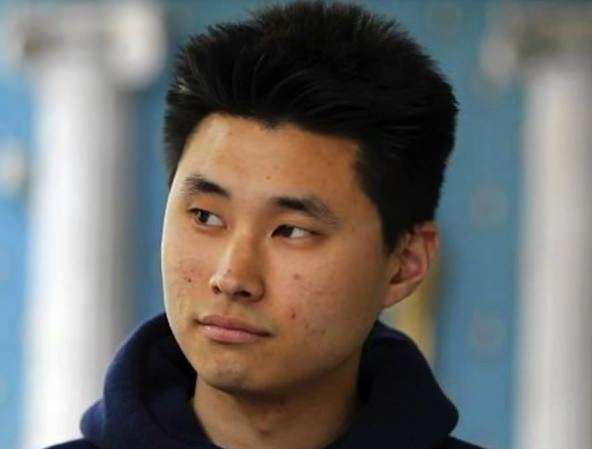DEA Agents Left Daniel Chong Abandoned in Holding Cell, Justice Department Confirms


Caught up in a drug bust on April 21, 2012, but never charged with any crimes, Daniel Chong was detained by Drug Enforcement Administration agents who left him handcuffed in a cell, without food or water, for five days, the U.S. Justice Department Office of the Inspector General (OIG) confirms. Although several DEA agents noticed his presence, they assumed somebody else was responsible for him. Chong survived by drinking his own urine before being discovered by DEA personnel unconnected to his arrest and transported to a hospital for much needed medical treatment.
From the report summary:
As part of our investigation, the OIG attempted to determine which DEA employees may have come into contact with Chong during his detention for 5 days at SDFD and how a detainee could be left in a holding cell and forgotten about for so long. The OIG concluded that the SDFD holding cell area lacked any recordkeeping methods to track detainee movements. Additionally, although there was video coverage of the holding cell area, the individual cells did not contain cameras, and the single video camera that was present could only be monitored by an employee not in the holding cell area, and that employee was not assigned solely to holding cell duties and had many other responsibilities. There also was no official DEA policy or training regarding the operation of the holding cell area, and no requirement that DEA personnel check the holding cells at the end of a day to ensure that all detainees had been properly processed, either for arrest or release. Moreover, DEA personnel were not required to sign - in and sign - out of the detention area, and there were no reliable electronic entry records for the relevant period because the door locking mechanism at the entrance to the detention area was not functioning properly. Accordingly, the OIG was not able to identify from electronic entry records or logs DEA personnel that entered the hold ing cell area during Chong's detention.
We were able to identify four employees who had seen or heard Chong during the period of his detention. However, the employees told us there was nothing unusual about their encounters with Chong in the detention c ell. Additionall y, all four employees told us t hey assumed that whoever had placed Chong in the cell would return shortly to process him.
The DEA's San Diego Field Division not only had no system in place for monitoring the status of prisoners, the report notes, but officials apparently tried to manage the aftermath of Chong's mistreatment without notifying higher-ups or the OIG. That might be interpreted by a suspicious mind as a panic-driven attempted cover-up.
The OIG concluded that in addition to the three case agents, a DEA supervisor was responsible for the safe handling and welfare of all detainees during the narcotic enforcement operat ion on April 21, and was also accountable for Chong's extended detention. As the on - scene commander in the holding and detention area, the supervisor should have ensured that all detainees, including Chong, were either released or charged at the conclusio n of the investigative operation on April 21. His failure to do so resulted in Chong's unjustified detention and his need for significant medical treatment.
We further found that this same DEA supervisor violated DEA policy and showed poor judgment by initiating an investigation of the incident without management's approval in the immediate aftermath of Chong being discovered in the holding cell, and by assigning two of the case agents -- the two task force officers -- to conduct the processing of Chong 's holding cell for evidence. This action was a violation of DEA policy that requires field divisions to notify DEA's Office of Professional Responsibility (OPR) of alleged misconduct so that the OIG can determine whether OIG or DEA OPR will investigate the allegations.
The report refers to Chong cutting himself with his broken glasses. Chong himself has said he attempted to carve a last message to his mother into his arm in his desperation.
Chong subsequently won a $4.1 million settlement against the Justice Department. The report summary refers to "recommendations" made in the incident, but no specifics about disciplinary action for the agents and supervisors who left a prisoner shackled and without food and water.


Show Comments (70)